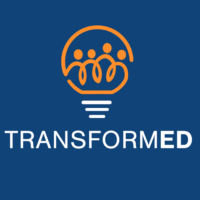
NEWS
Data Governance

Transforming the Strategic Plan to Transform the Institution
Dr. Michael Lacourse, Provost at Utah Tech University, joins Joe Gottlieb to walk through a series of strategic planning cycles and the meaningful impact the entire institution realized as the strategy evolved over time. Learn from Dr. Lacourse about the planning process and its outputs as well as the impressive results for Utah Tech, its […]

Transforming Business Reports as a Pathway to Data Governance
In this episode of TRANSFORMED, Fred Rocha – retired CIO of Coast Community College District and Senior Consultant with Higher Digital, joins Joe Gottlieb to discuss how evolving business reporting can lead to better data governance in higher education. They explore common challenges institutions face, like siloed data and manual reporting processes, and offer insights […]

Using Technology and Innovation to Improve Accessibility
Higher Digital President Joe Gottlieb sat down with Amy Shaw, the Senior Director of Customer and User Experience at Higher Digital, to discuss how higher education institutions can utilize technology to transform the student experience and improve accessibility.

Is a low or no code platform right for your organization?
Low code and no code platforms provide ways to create applications through graphical user interfaces and configuration rather than the traditional practice of software developers writing lines of code. In his latest blog, Jason Pyle shares how these platforms are expanding application development and capabilities in higher education.

How Higher Education Institutions Can Take Control of Their Data
There is a lot of confusion in higher education about the term “data governance.” Is it the same as data quality or data management? We recently demystified data governance and explained the key pillars of any data governance initiative including data responsibility, data quality, data privacy, and data security.

Demystifying Data Governance for Higher Education Institutions
There’s a lot of confusion in higher education about what data governance is. Is it security, is it policy, is it data quality? In this blog, we demystify data governance for higher education institutions, explore the signs that your institution may have a data governance problem, and examine the key pillars of data governance.

Microcredential in Data Governance
Higher Digital President Joe Gottlieb sat down with colleague Henry DeVries, VP and Principal Consultant of Analytics and Finance, to chat about data governance.

Data Governance in Higher Education
The requirement for data-informed decisions extends across the campus, including academic advising for student success; donor selection for advancement fund-raising campaign; energy conservation and facilities utilization programming; budget allocation and expenditure control. However, each of these examples contains a major assumption—that the underlying data are both trustworthy and the highest quality available.